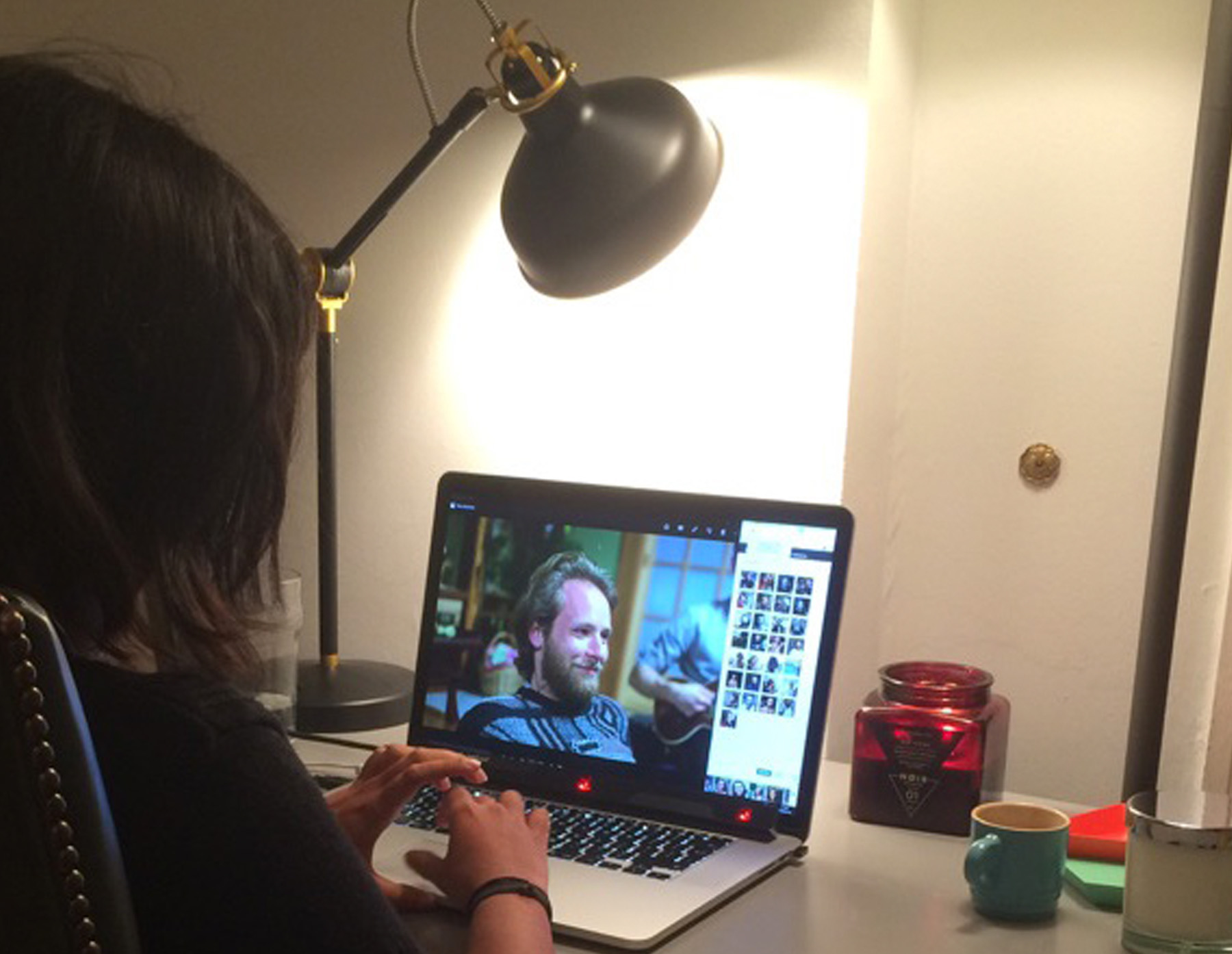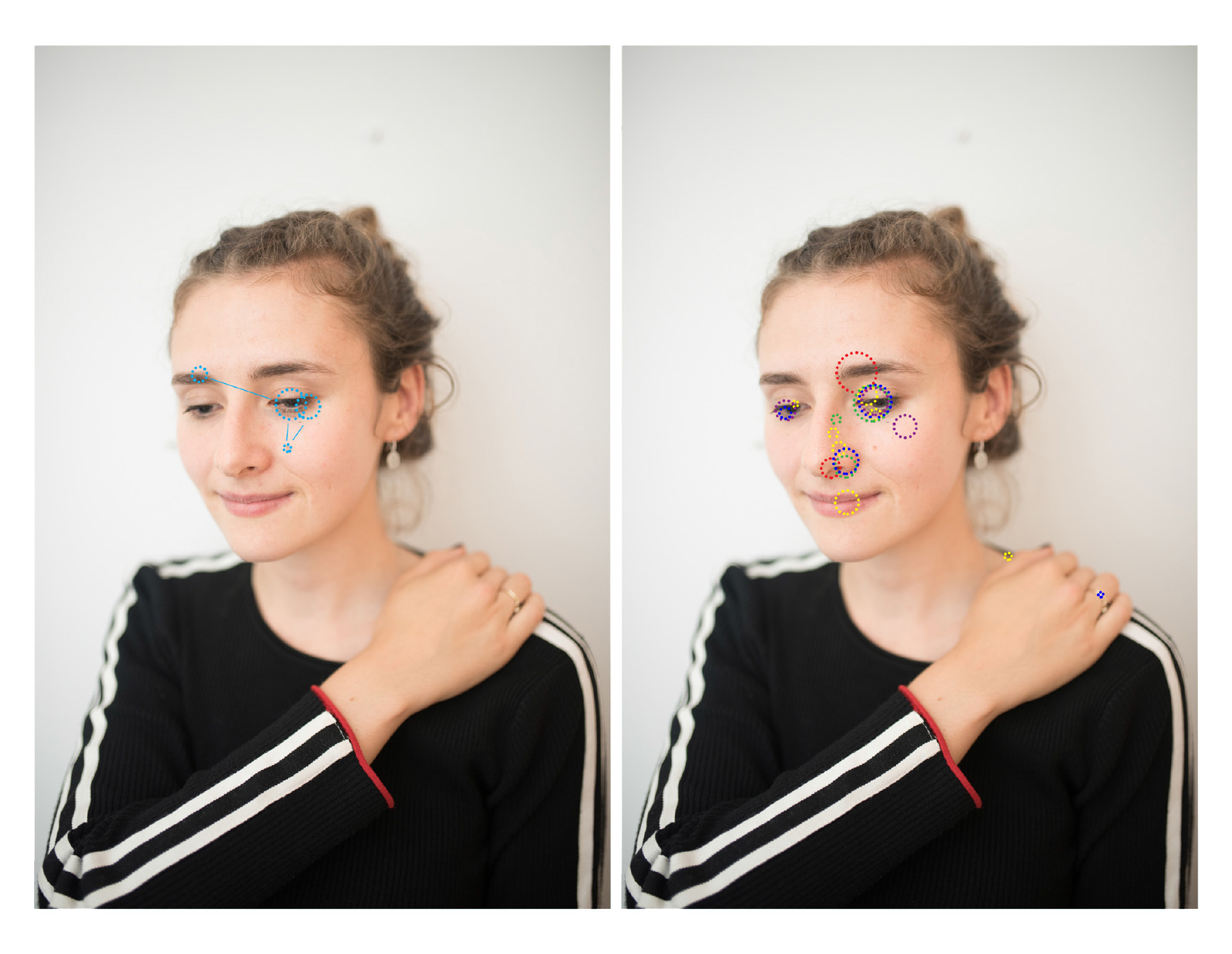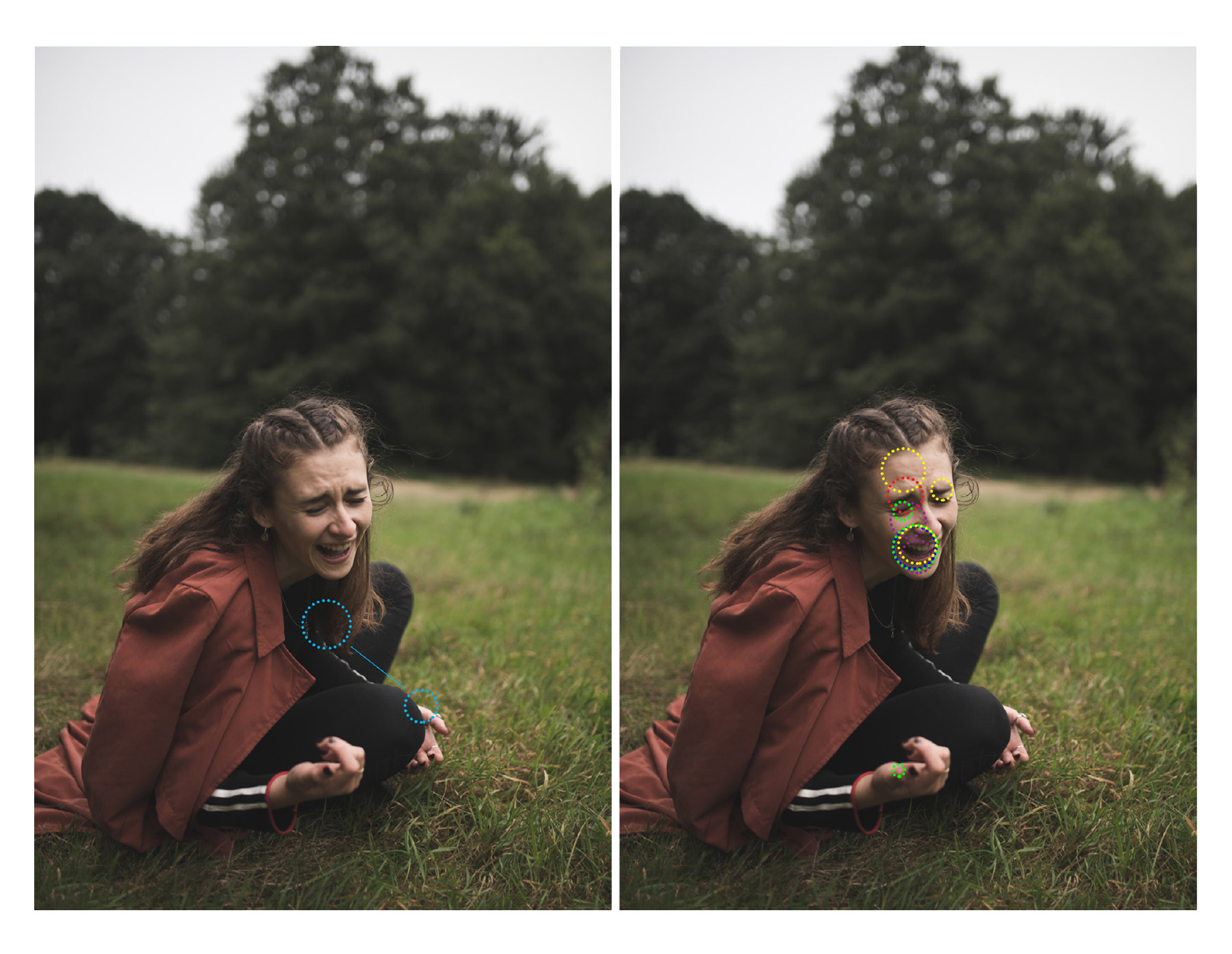Self-Perception and all its Deceptions.
Understanding how people percieve themselves by investigating how they physically scan their own faces, using eye tracking technology.
A project in which I investigated the psychological mechanisms at work when people perceive photographs of themselves, and how that varies from how others perceive them.
Eye trackers were used to collect eye gaze data from all the subjects, such that a quantitative analysis could be carried out, to identify patterns in eye gaze data. Intimate interviews were conducted in an attempt to uncover the true thoughts hidden behind a photographed portrait.
Different experiments were conducted, the most promising being to rank a set of photographs from favourite to least favourite. This gave the ‘voters’ an easy way of choosing their favourites, and allowed me to assign a score to photographs without the ‘voters’ having to think of a specific number; it is easy and reliable to compare, this is not the case when asked to score a qualitative dataset.
The alternatives of stating whether one like or disliked a photograph provided too low a resolution for extracting meaningful data. A ‘simple’ scoring system proved to have discrepancies, as voters may change their scoring criteria towards the end of a dataset, having seen the other photos; or just felt bad for giving someone a low score.





